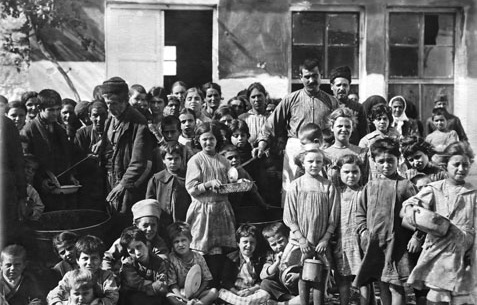Crete, the largest of the Greek islands, has a rich and complex history marked by periods of both prosperity and turmoil. Among the many chapters of this history is the poignant story of Cretan refugees, a narrative that spans centuries and encompasses displacement, resilience, and renewal. From the invasions and occupations by foreign powers to the upheavals of World War II, the experiences of Cretan refugees reveal a deeply human aspect of the island’s past and its enduring spirit.
Historical Context of Displacement
The history of Crete is marked by a series of invasions and occupations that forced many of its inhabitants to flee their homes. Each period of turmoil created waves of refugees who sought safety and new beginnings both within the island and in far-flung regions.
Venetian and Ottoman Periods
During the Venetian period (1204-1669) and the subsequent Ottoman occupation (1669-1898), Crete was a battleground for control between powerful empires. These conflicts led to significant displacement of the local population.
- Venetian Rule: The Venetians fortified several cities, but rural areas often suffered from neglect and conflict. The Venetian efforts to impose Catholicism also caused friction with the predominantly Orthodox Christian population, leading to unrest and displacement.
- Ottoman Occupation: The Ottoman conquest brought about drastic changes in land ownership and social structures. Periodic uprisings by the Cretan population against Ottoman rule often resulted in brutal reprisals and forced migrations. Many Cretans fled to the mountains or emigrated to escape persecution.
The Greek War of Independence and Beyond
The Greek War of Independence (1821-1830) and subsequent revolts against Ottoman rule further exacerbated the refugee crisis in Crete.
- Revolutionary Upheaval: During the 19th century, several uprisings aimed at achieving union with Greece led to widespread violence and displacement. The Great Cretan Revolution (1866-1869) is a notable example, where thousands of Cretans were forced to flee their homes due to the conflict.
- Union with Greece: Crete’s eventual union with Greece in 1913 brought a measure of stability, but the island’s strategic importance meant it continued to experience waves of refugees, especially during the Balkan Wars and World War I.
World War II and the Battle of Crete
World War II marked one of the most harrowing periods in Cretan history, particularly during the Battle of Crete in 1941 and the subsequent German occupation.
- The Battle of Crete: The invasion of Crete by German paratroopers was a significant event in WWII. The fierce resistance by Cretan civilians and Allied forces led to heavy casualties. The aftermath saw thousands of Cretans fleeing their homes to escape the violence and reprisals.
- Occupation and Repression: The German occupation was marked by severe repression, executions, and forced labor. Entire villages were destroyed as collective punishment for resistance activities. Many Cretans sought refuge in the mountains, where they joined resistance groups or lived in hiding to avoid capture.
Post-War Displacement and Migration
The aftermath of World War II and the Greek Civil War (1946-1949) saw continued displacement and migration from Crete.
- Economic Migration: The post-war period was difficult, with widespread poverty and economic instability driving many Cretans to seek better opportunities abroad. Significant numbers emigrated to the United States, Australia, and other parts of Europe.
- Diaspora Communities: These diaspora communities played a crucial role in preserving Cretan culture and traditions while contributing to their new homelands. They also maintained strong ties with their homeland, supporting family members who remained on the island and investing in local development.
Resilience and Renewal
Despite the challenges of displacement, the story of Cretan refugees is also one of resilience and renewal. The island’s culture and identity have been profoundly shaped by the experiences of those who were forced to leave and those who chose to return.
- Cultural Preservation: Cretan refugees and their descendants have played a vital role in preserving and promoting Cretan culture, from traditional music and dance to culinary traditions. This cultural heritage has been a source of strength and identity for Cretan communities both at home and abroad.
- Return and Reconstruction: Many Cretans who emigrated eventually returned to the island, bringing with them new skills, ideas, and resources that contributed to Crete’s post-war reconstruction and development. The resilience of the Cretan people is evident in their ability to rebuild their lives and communities despite the hardships they faced.
Modern-Day Reflections
Today, the legacy of Cretan refugees is commemorated and honored through various cultural and historical initiatives. Museums, memorials, and educational programs ensure that the stories of displacement and resilience are remembered and passed down to future generations.
- Cultural Events: Festivals and cultural events celebrating Cretan heritage often include tributes to the experiences of refugees. These events serve as reminders of the struggles and triumphs that have shaped the island’s history.
- Educational Programs: Schools and universities in Crete and among the diaspora incorporate the history of Cretan refugees into their curricula, fostering a deeper understanding of the island’s past and its impact on the present.
Conclusion
The story of Cretan refugees is a powerful testament to the resilience and enduring spirit of the Cretan people. Through centuries of displacement and hardship, Cretans have preserved their culture, rebuilt their communities, and contributed to the broader tapestry of global history. Today, as Crete continues to thrive, the experiences of its refugees serve as a poignant reminder of the island’s capacity for renewal and the strength of its cultural heritage.


